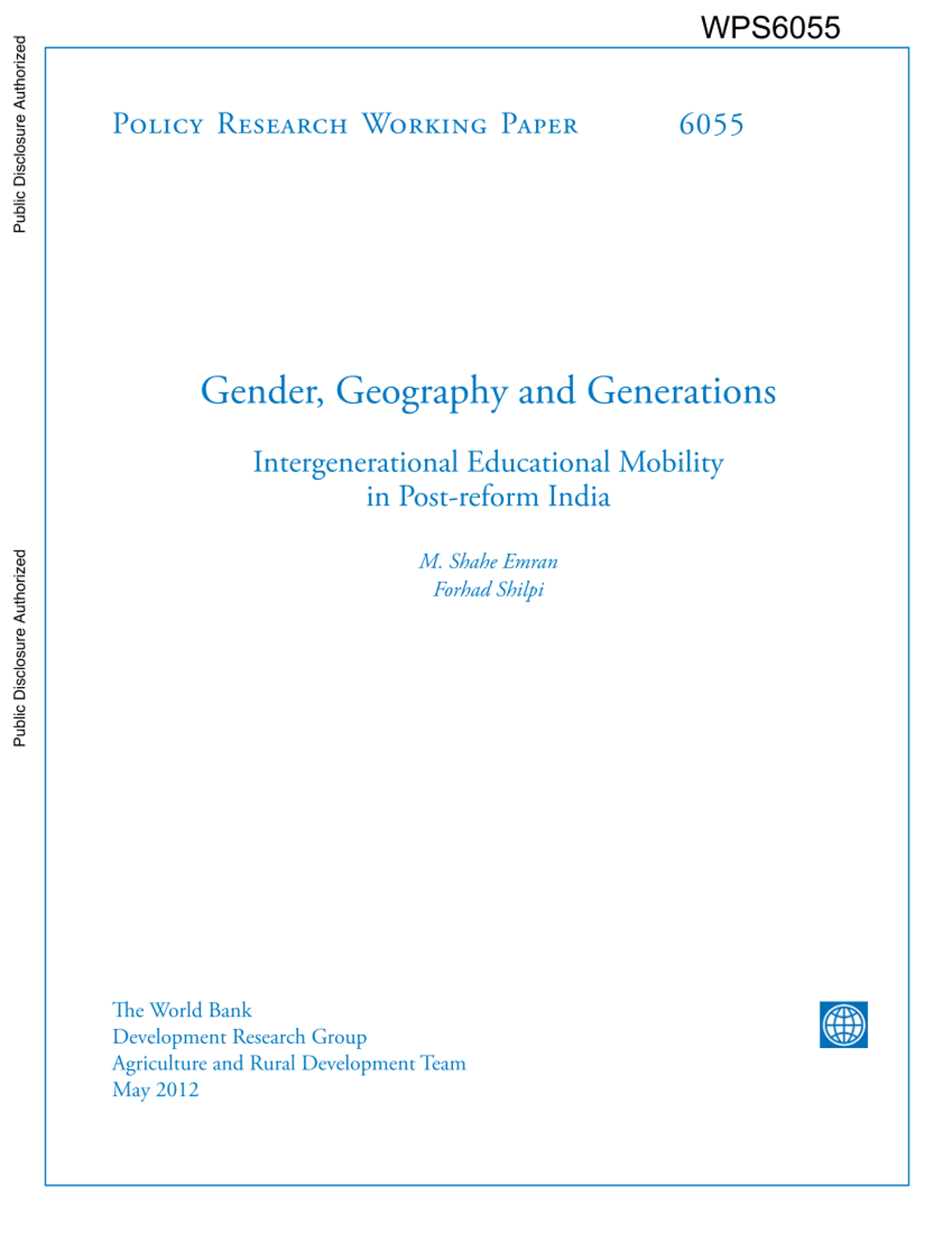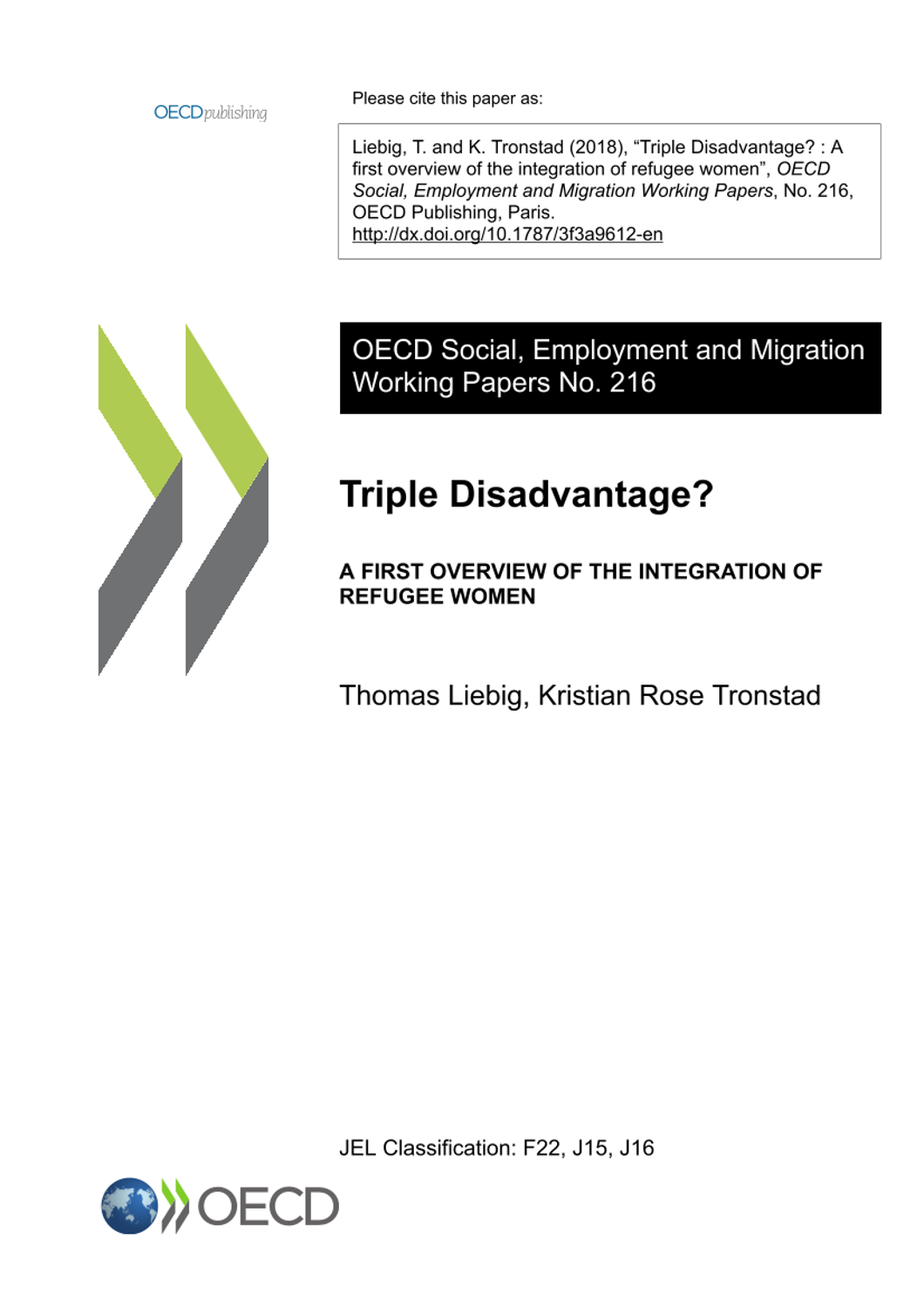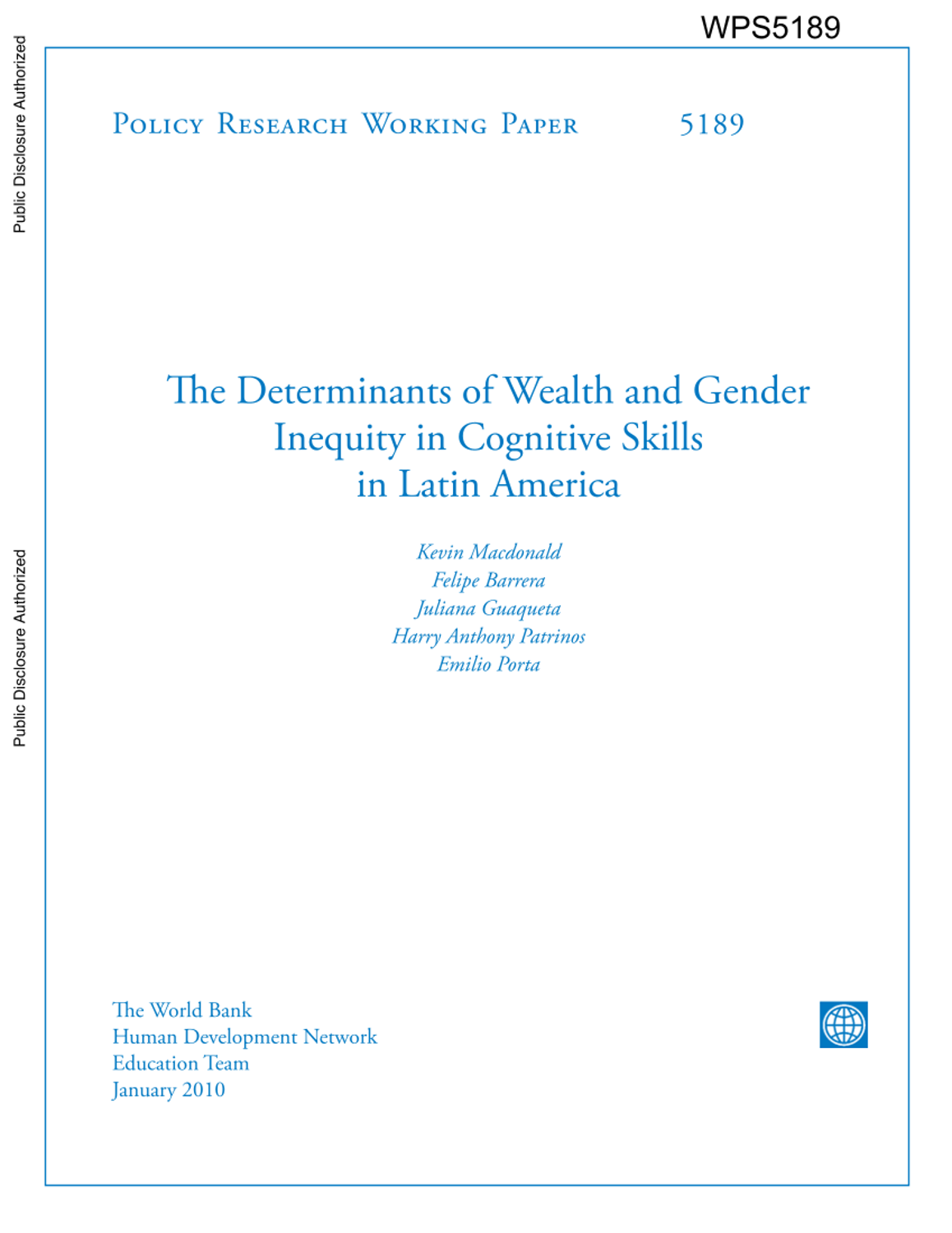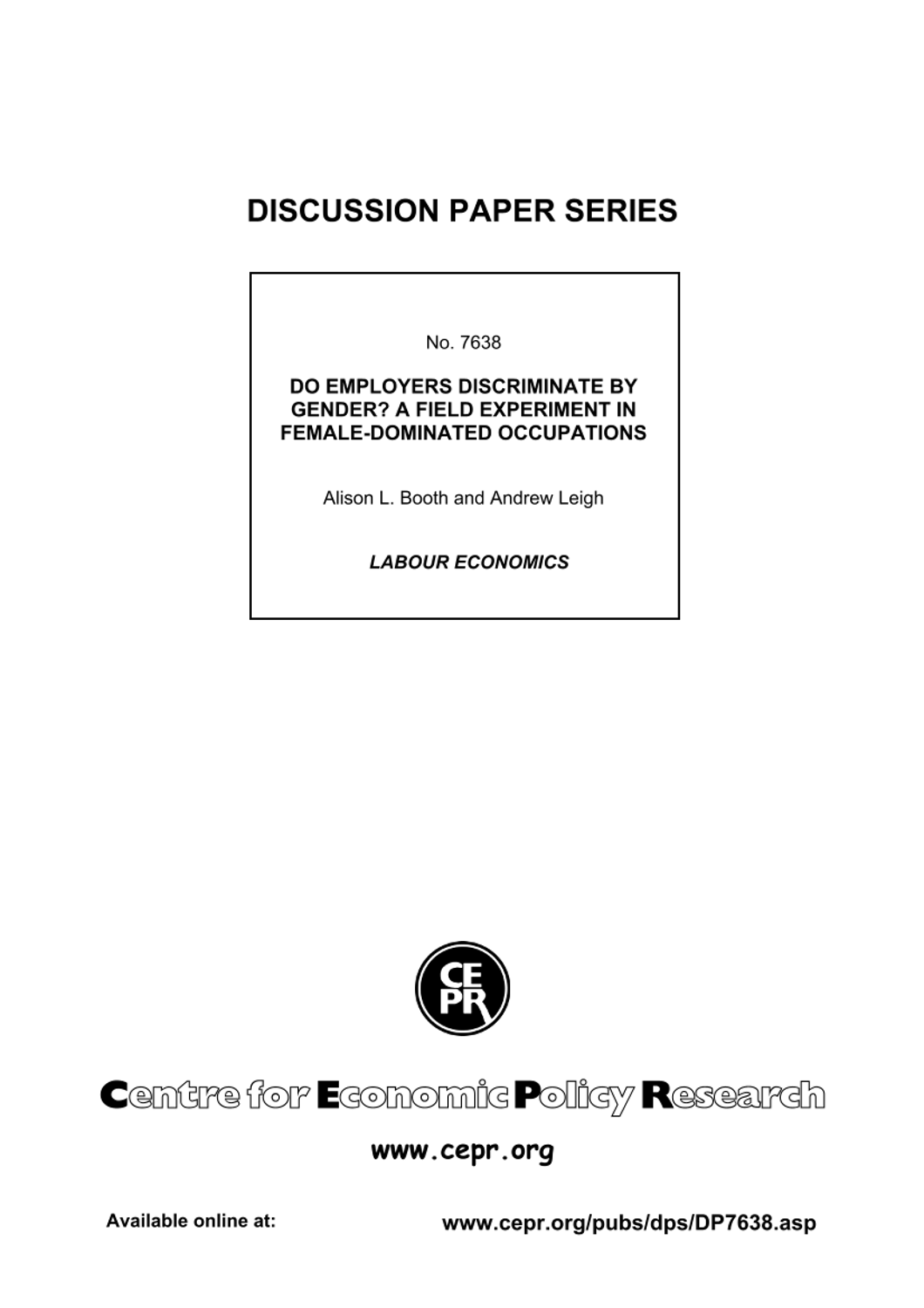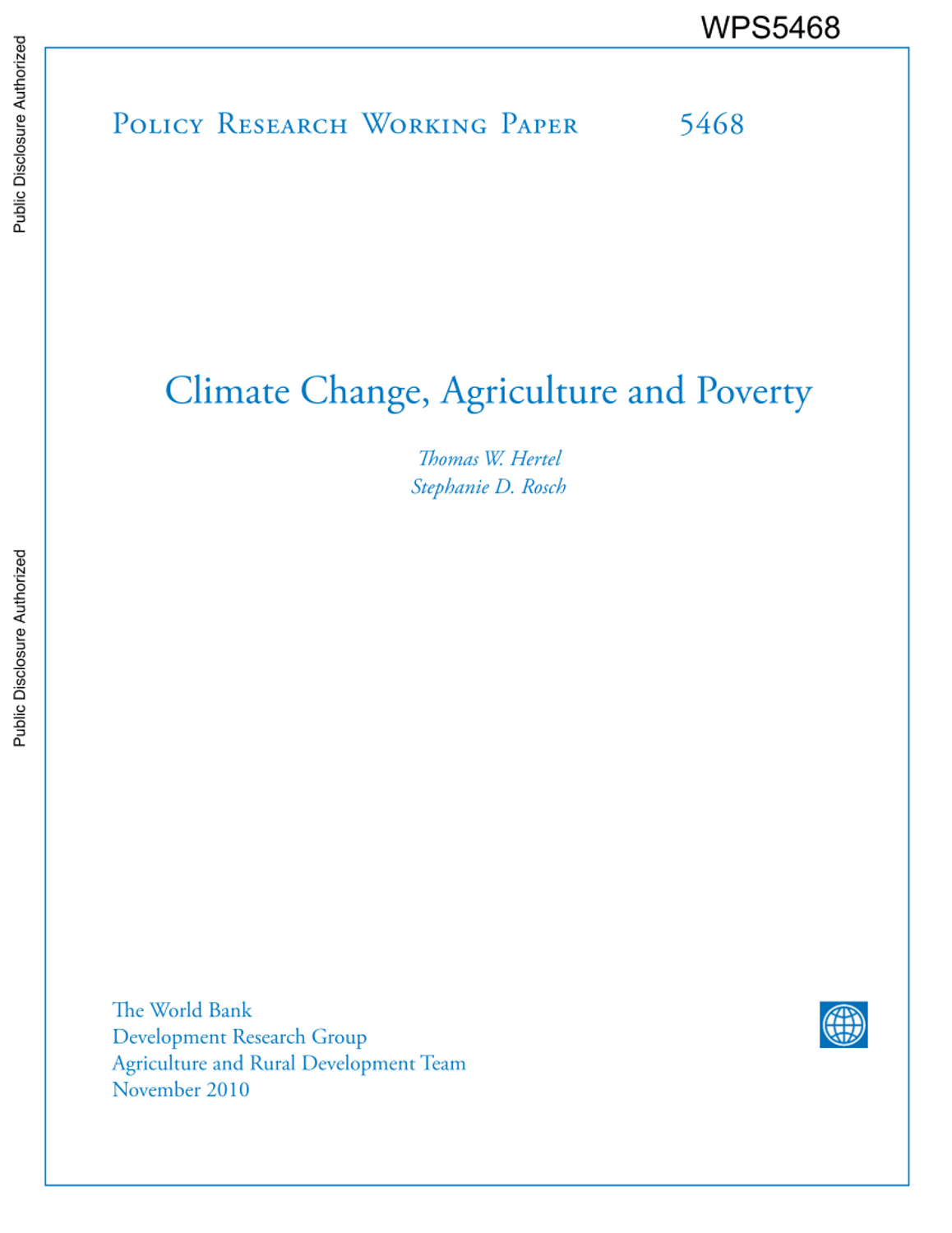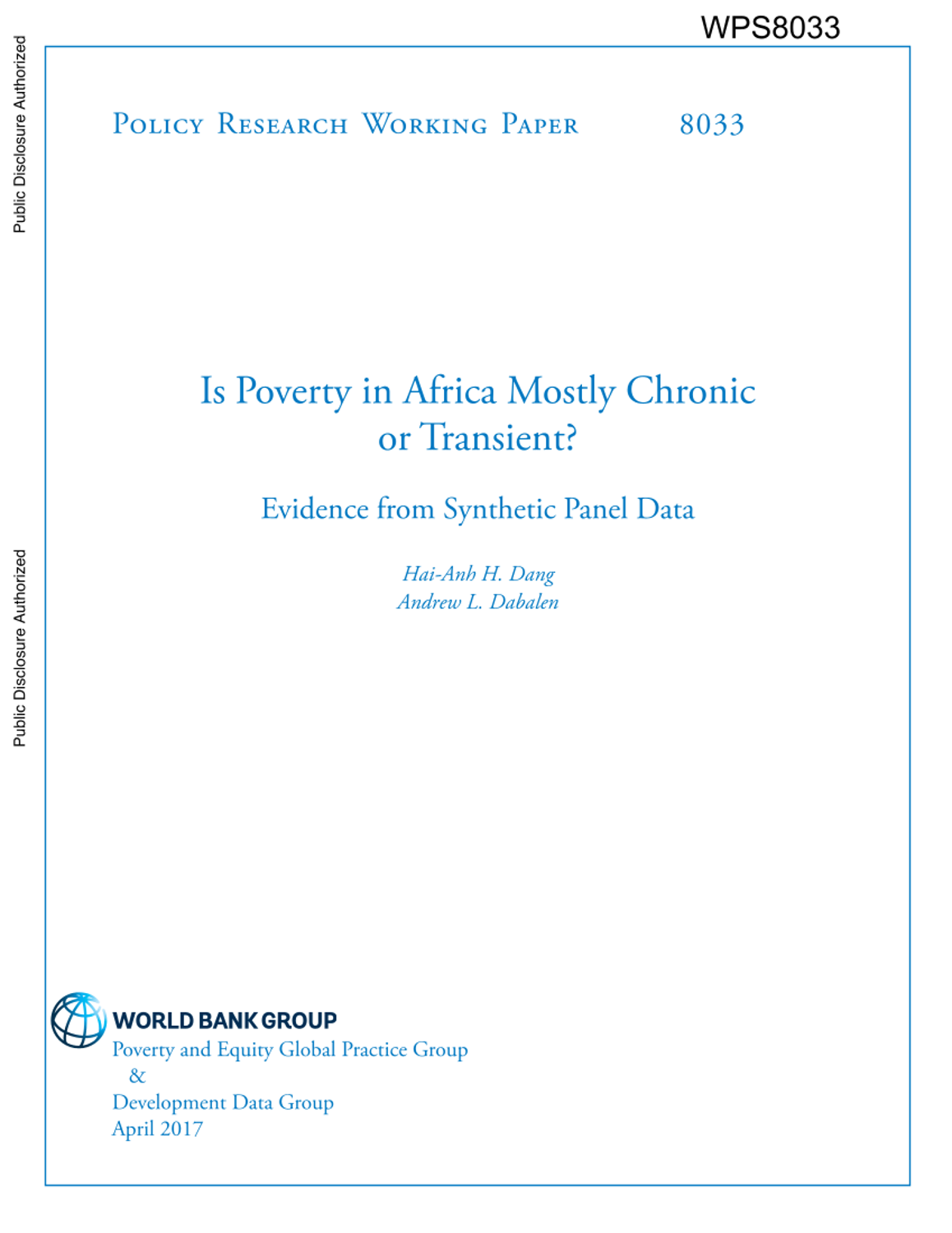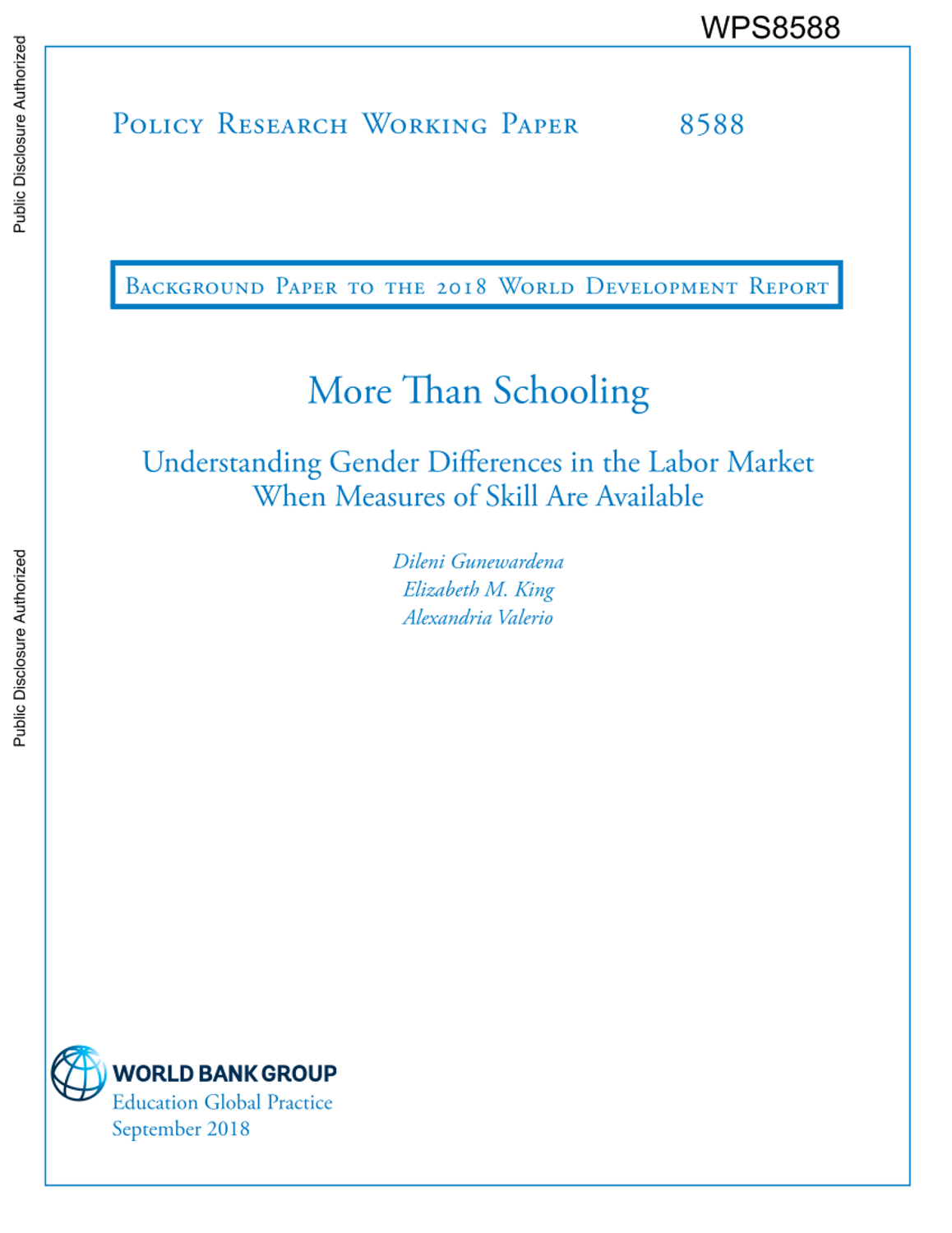연구보고서World Bank Policy Research Working Paper 6055
Gender, geography and generations: Intergenerational educational mobility in post-reform India
- 청구기호
- WPS 6055
- 발행사항
- Washington,D.C : World Bank, 2012
- 형태사항
- 49 p. :. PDF file ;. 1397 KB
- 바로가기
소장정보
| 위치 | 등록번호 | 청구기호 / 출력 | 상태 | 반납예정일 |
|---|---|---|---|---|
이용 가능 (1) | ||||
| E0001250 | 대출가능 | - | ||
이용 가능 (1)
- 등록번호
- E0001250
- 상태/반납예정일
- 대출가능
- -
- 위치/청구기호(출력)
책 소개
India experienced sustained economic growth for more than two decades following the economic liberalization in 1991. While economic growth reduced poverty significantly, it was associated with an increase in inequality. Does this increase in inequality reflect deep-seated inequality of opportunity or efficient incentive structure in a market oriented economy? This paper provides evidence on economic mobility in post-reform India by focusing on the educational attainment of children. It uses two related measures of immobility: sibling and intergenerational correlations. The paper analyzes the trends in and patterns of educational mobility from 1992/93 to 2006, with a special emphasis on the roles played by gender and geography. The evidence shows that family background plays a strong role; the estimated sibling correlation in India in 2006 is higher than the available estimates for Latin American countries. There is a persistent gender gap in rural and less-developed areas. The only group that experienced substantial improvements is women in urban and developed areas, with the lower caste women benefiting the most. Almost 70 percent of the variance in children''s education can be accounted for by parental education and geographic location. The authors provide possible explanations for the apparently puzzling improvements for urban women in a country with strong son preference.

